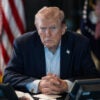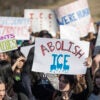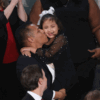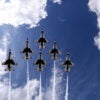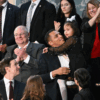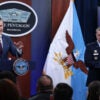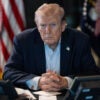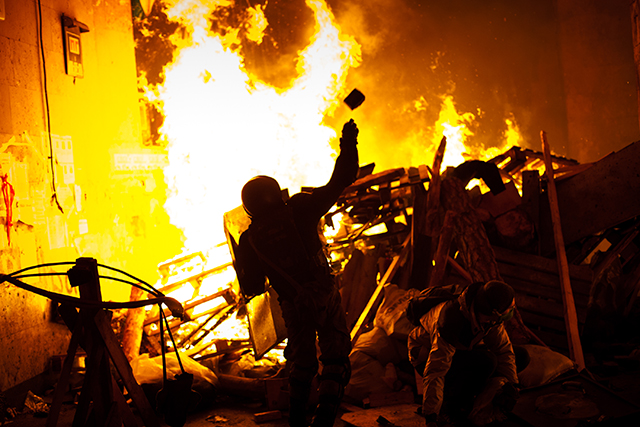The worst crisis since the wars in Yugoslavia is convulsing Eastern Europe. Ukraine is on the brink of a civil war, and Russian intervention may be possible despite the Sochi Olympics. An East-West confrontation may be imminent.
On Tuesday, the brutal Berkut riot police stormed the main anti-government protest camp at the Independence Square (Maidan). Twenty-two people were killed and hundreds wounded. Violence is spreading beyond the ancient capital Kyiv to the country’s nationalist West.
The attack began as the Ukrainian Parliament was due to debate the return to the constitution of 2004, which would limit presidential powers. However, the presidential Party of Regions refused to debate the amendments and triggered violent protests — just hours after the Kremlin went through with $2 billion in Ukrainian government’s junk bond purchases to aid Ukraine President Viktor Yanukovich. This is a part of a bigger $15 billion aid packet that Moscow promised.
Ukrainians have been protesting in the country’s capital, Kiev, since late November, when Yanukovich refused to sign an Association Agreement with the EU. Yanukovich on several occasions tried to crack down on the demonstrators using riot police and “titushki” – pro-government plainclothes thugs who infiltrate the protesters’ ranks in order to provoke clashes and justify police violence.
Yanukovich is reaping what he has sowed. On Jan. 16, pro-Yanukovich members of parliament passed sweeping anti-protest legislation. This move only intensified demonstrations, which spread beyond Kiev, even to the pro-Yanukovich eastern and southern Ukraine. The president backed down and reversed the anti-demonstration legislation.
Russian President Vladimir Putin used Ukraine’s outstanding gas debt to Russia of $2.7 billion to put pressure on Yanukovich to continue the crackdown during the presidents’ meeting in Sochi on Feb. 7.
Russia is willing to use its vast oil revenues to bring Ukraine to heel. The question is whether Russia would be willing to use its military force – overtly or covertly. On Jan. 30, one of Putin’s advisors accused the U.S. of arming the protesters and threatened Russia’s intervention to maintain “security” in Ukraine. It is likely that Russia will encourage Yanukovich to continue to use force against the protesters. It is unclear, though, if he succeeds.
Ukraine is strategically important. It has a massive industrial base; abundant agriculture; and a lengthy shoreline along the Black Sea. It also borders four NATO allies: Poland, Slovakia, Hungary, and Romania. Russia covets it for its renewed sphere of influence.
A lot is riding on next steps by the U.S. and our European allies. Washington has to exhibit strong leadership to resolve the crisis in Ukraine peacefully – and in accordance to strategic U.S. interests. It should call for an immediate cessation of government brutality and violence and helping Ukrainians to map out a path to a constitutional reform and the new elections this spring.
America and the Europeans should work with international and Ukrainian non-governmental organizations to document human rights violations committed by Ukrainian leadership and law enforcement authorities.
U.S. and our European allies should impose targeted sanctions, such as asset freezes and visa bans against all Ukrainian officials responsible for violence against protesters. The U.S. Congress is demanding as much
Finally, the U.S. and its European partners should support an IMF bailout package only if conditioned on massive economic reform by a new government, and the release of all political prisoners, including former Prime Minister Yulia Tymoshenko, without any preconditions.
The world is looking at Kyiv.
The U.S. needs to show leadership.

